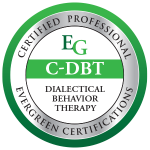EMDR Therapy
What is EMDR?
Eye movement desensitization and reprocessing (EMDR) is an effective trauma therapy
treatment used to help individuals who have experienced trauma by alleviating the disturbance that is associated with trauma memories, thoughts, and feelings. EMDR is also effective for treating other disorders including depression and addiction.
Rayné specializes in treating childhood trauma and interpersonal relationship problems and is certified in DBT. She uses other modalities too, including EMDR, Emotions Focused Therapy (EFT), Acceptance and Commitment Therapy (ACT) and Cognitive Behavior Therapy. She finds satisfaction in providing mental and emotional therapeutic support to individuals and couples who are committed to transformation.
What can I expect when engaging in EMDR with my therapist?
The following is a detailed summary includes everything there is to know about the EMDR protocol. This summary is to give you an idea of what to expect.
As your therapist I will explain in greater detail in session what EMDR is and how it is believed to help alleviate distress for people who have suffered traumatic experiences. You get to decide if you want to try EMDR and I will help you prepare for the treatment.
The first step- you will be asked to complete a dissociative measure. You can take a look at it here: http://traumadissociation.com/des This is to help me know if you struggle with dissociation and if so, how much. Your score will inform me of how ready you are to begin EMDR.
I will guide you in the process of building a couple of resources- strategies for you to use to manage stress, grief and also use at the end of an EMDR session if needed.


We will go over your history and develop a treatment plan. This step is to really get an understanding of the underlying problem of what brought you to therapy. In this step you will explore and identify how your trauma shows up in your day to day life. For example, you might say you came to therapy because you are having bouts of rage or meltdowns. I would help you explore the situations, people and places where this rage or these meltdowns are triggered, how you feel in those situations and what you are believing in those moments.
I’ll ask you to go into your past and identify disturbing memories. There is no need to go into great detail. In fact, I’ll only ask for and encourage you to just give me the “headlines” when describing what you experienced. I will, however, need to know the age you experienced the trauma, a brief description of the trauma, current situations, people or places that bring up the trauma and how you would like to handle the situation in the future.
Usually, in the assessment phase, I ask that we start with your earliest memory of trauma although we can decide together to start with the earliest or worst memory you have. Once you decide which memory to target I will ask you to identify the image that comes to mind when you recall the memory. I will ask the following questions: what is the negative belief you have about yourself now in connection with this memory; what you would prefer to believe instead about yourself; how true the preferred belief feels to you; what emotions you are experiencing in the moment; what level of disturbance you feel in the moment; where in your body you feel the emotions.
After that we begin the reprocessing of your target memory by using bilateral stimulation (BLS)- either back and forth eye movements or tapping. This phase is called the desensitization phase. Using BLS I will guide you to just notice what your mind sees, thinks and feels as well as what is happening in your body. You just notice and at the end of each set of BLS I’ll ask you to report what you noticed. We will do numerous sets of BLS. From time to time I will ask you to report your level of disturbance using a 0-10 point scale. When you reach zero level of disturbance we move onto the next phase.


The next phase is when we take the belief you would prefer to believe about yourself and pair it with the memory for reprocessing. This is called the installation phase. The same procedure is followed using BLS, noticing and reporting. I’ll ask you from time to time to report your level of belief regarding your preferred belief about yourself. When you reach the highest level of belief which is a level seven I ask you to do a body scan to notice whether any tension remains in the body. If so or if you have positive body sensations we use the same procedure to work out the discomfort or build in the positive sensations.

Honea Henderson Owens, LMSW
Honea worked in the banking, finance, and real estate world before changing careers and becoming a therapist. Through personal life events, Honea became acquainted with social workers and therapy for trauma. This led her to return to school to focus on helping others navigate significant life events in a healthy and supportive way. Honea earned her Bachelor’s Degree in Interdisciplinary Studies at the University of Texas at Dallas. She returned to the University of Texas at Arlington and earned her Master of Social Work degree. She became licensed in the State of Texas and is pursuing her Licensed Clinical Social Work designation. Her background and life experience give her a unique perspective on areas of stress and struggle in people’s lives.
Honea found her practice focus through providing group and individual therapy to women leaving the sex trafficking industry. She worked at New Friends New Life in Dallas as a mental health clinician providing both group and individual services to her clients before deciding to leave agency work for private practice. She is trained in basic and advanced scripts for Eye Movement Desensitization and Reprocessing (EMDR). She has a background in teaching Dialectical Behavior Therapy (DBT), Cognitive Behavior Therapy (CBT), and Trauma-Focused Cognitive Behavior Therapy (TF-CBT) to clients through group and individual sessions. Her current client focus is on trauma-related issues including anxiety, depression, and co-morbid substance abuse support. She continues to pursue additional training and follow research in her areas of interest to provide clients with the most up-to-date and effective techniques and methods available. She is accepting new clients 13 years and older for individual, couples, and family therapy via telehealth with some in-person sessions available.

Melanie Cephas, LMSW
Melanie Cephas is a Licensed Master Social Worker who specializes in working with youth, adolescents, young adults and adults with behavioral and emotional difficulties. She has earned her Bachelor’s degree in Sociology and Master’s degree in Social Work at Baylor University with a specialization in Clinical Practice. Melanie has worked within a wide range of capacities including residential treatment, anti-trafficking, school counselor and private psychotherapy practice. To meet each client’s individual and unique needs, she uses a variety of therapeutic interventions appropriate for her clients such as DBT, CBT, EMDR, TF-CBT, and TBRI.
Her primary work has been working for an anti-trafficking agency where she worked with high risk young women ages 12-22. Most of her clients have experienced at least one form of abuse- physical, verbal/emotion and/or sexual. They often witnessed or experienced domestic violence, misused substances, struggled with low self-esteem, and/or struggled with depression/anxiety or behavioral difficulties.
Melanie has a special passion for working with youth, adolescents and young adults that suffer from childhood trauma. She has the skills to assist those with low self-esteem, struggle with self-harming behaviors, and who may have developed PTSD or anxiety, bipolar disorder, or major depression. Facilitating groups for teens is what she enjoys. Melanie also provides family therapy and has worked with couples. At Let it Rain Psychotherapy, Melanie offers therapy for individuals, couples, families and teens and is currently accepting new clients. She is under the clinical supervision of Rayné Ventimiglia, LCSW-S. You can call Melanie at 469-509-8766.
The goal of all you hard work in EMDR is that you have new thoughts, feelings, beliefs and a new narrative about yourself, your life and your people. You will be able to recall the memories but EMDR helps free you of the related disturbance you had before EMDR treatment.
For more information on the EMDR click here: https://www.emdria.org/about-emdr-therapy/
Here is an article about EMDR: https://www.ncbi.nlm.nih.gov/pmc/articles/PMC3122545/
Here is a link to my practice to request an appointment for EMDR or other type of therapy: https://letitrain.clientsecure.me/
I am trained in EMDR through the EMDR International Association and have been using EMDR since 2022. Please feel free to reach out to me if you are interested in EMDR- 817-874-8169.


